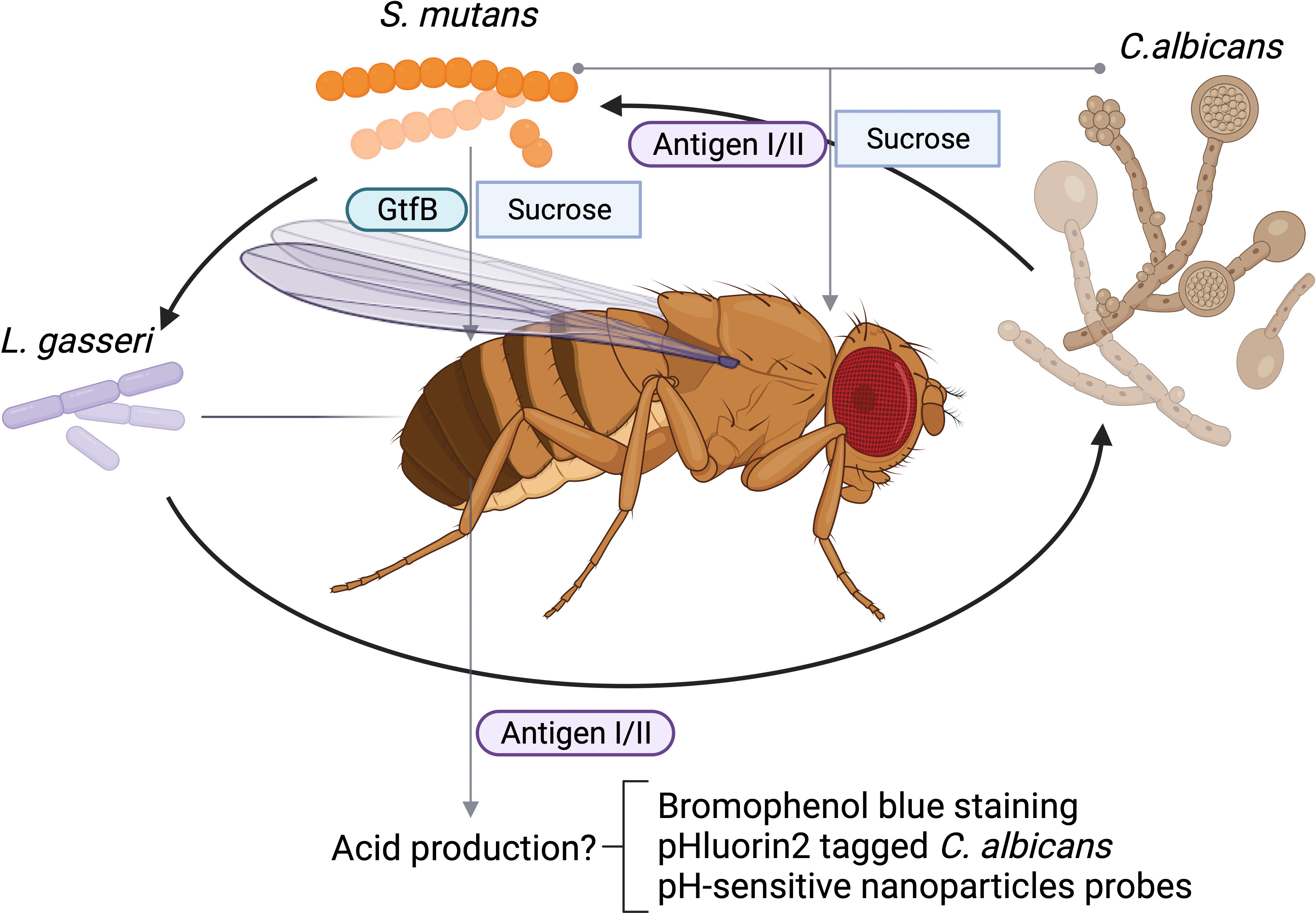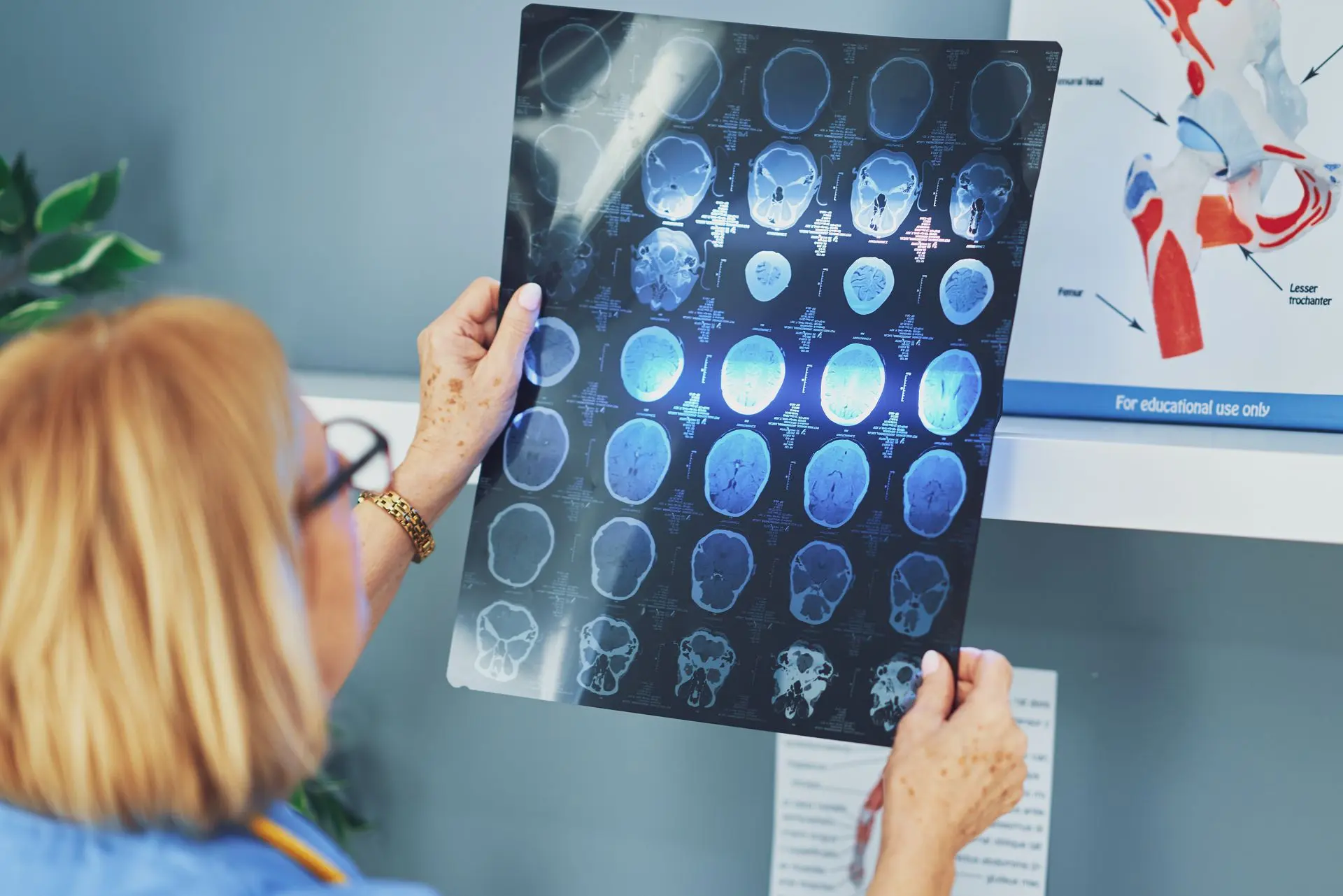Our Goal
We are working to make it easier to detect Alzheimer’s disease early,
predict who might get it, and track how it changes over time.
Our research focuses on finding biomarkers—simple signs in the body,
like changes in the blood or brain—that can tell us more about
Alzheimer’s.
Why Biomarkers Matter in Alzheimer’s Research
Biomarkers provide objective, quantifiable indicators of biological states and disease processes. In Alzheimer’s disease, they can:
Enable earlier and more accurate diagnosis
We provide tools and methods that help doctors detect Alzheimer’s disorder
in its early stages, even before major memory loss begins. Our advanced diagnostics include:
Biomarker tests (blood-based or imaging) that spot early changes in the brain
Support for primary care and neurology teams to make faster, more confident diagnoses
Helping patients get earlier access to support, planning, and care
Early diagnosis improves quality of life and opens the door to more treatment options.
Identify patients who may benefit most from new therapies
Not every patient responds to treatment in the same way. Our services help match the right patients with the right therapies, by:
Using biological markers to understand a person’s unique disease pattern
Helping doctors predict which patients are more likely to respond to certain Alzheimer’s drugs
Supporting personalized medicine—care tailored to the individual
This means patients can avoid treatments that won’t help and get access to new ones that may slow the disease.
Improve clinical trial design and success rates
Clinical trials for Alzheimer’s treatments are often complex and expensive. Our diagnostic tools and research services support faster, more effective trials by:
Selecting the right participants using validated biomarkers
Tracking how well treatments work with measurable, real-time data
Reducing trial failure rates by improving study design and outcome accuracy
This helps bring new treatments to patients sooner and improves the chances of success for promising drugs.
✽ Here are the main things we’re trying to do:
🎯Discover
What We’re Working On
Find Early Warning Signs
We want to discover biomarkers that can show if someone is starting to get Alzheimer’s—even before serious memory problems appear. Early diagnosis gives people more time to plan and get the help they need.
Predict Who Might Develop Alzheimer’s
Some people have mild memory problems, called MCI (mild cognitive impairment). Not everyone with MCI gets Alzheimer’s, but some do. We are looking for signs that can show who is more likely to develop the disease.
disorder.
Track Changes Over Time
We are also working on ways to monitor how Alzheimer’s progresses. This helps doctors know if treatments are working and allows for better care during all stages of the disease.
Top queries answered
In this section, you can find answers to frequently asked questions efficiently.
Our company specializes in neurological consulting, patient care, and research development. We tailor our services to fit the unique needs of individuals and healthcare providers, helping them navigate the complexities of neurological health.
You can reach our neurology support team by emailing us or calling (44)20 3393 8531 . Our dedicated team is available 24/7 to assist with any inquiries or concerns related to neurological health.
We’re committed to providing timely and effective solutions to ensure your health needs are met.
We offer a comprehensive consultation policy for all patients. Appointments must be scheduled in advance, and cancellations require 24 hours' notice. Follow-up consultations are typically arranged within 5-7 business days of the initial visit.

Imaging
The AddNeuroMed Imaging work package combines Magnetic Resonance Imaging, Dynamic contrast enhance MRI and Magnetic Resonance Spectroscopy to establish imaging markers for early diagnosis and detection of disease and efficacy of disease modifying therapy as well as translational Imaging biomarkers in animal models for AD. In AddNeuroMed we are using high resolution MRI on a number of pre-clinical models. These include transgenic animals and, a technological first, the use of micro-MRI on drosophila.
Drosophila models
Dietary restriction (DR) extends lifespan in diverse organisms and can delay a range of ageing-related illnesses including Alzheimer's disorder (AD), whereas high-fat diets are suggested to be an important environmental risk factor for AD. Moreover, several studies in mice have suggested that diet can alter the molecular mechanisms underlying AD pathology; caloric restriction may reduce Aß and tau pathologies and improve cognitive function in mouse models of AD, whereas high-fat diets have been shown to increase Aß pathology in these mice. A better understanding of the precise mechanisms mediating these interactions, however, may reveal novel pathways involved in AD pathogenesis, and potentially biomarkers for disease progression.
Drosophila models of AD have recently been developed and, due to their short life-span and susceptibility to genetic manipulation, may be useful in determining the connections between diet, ageing and AD pathology.


Organotypic Studies
Organotypic brain slice cultures occupy a unique niche in the biomarker discovery process. This technology allows for rapid evaluation of candidate biomarkers (since animal models can take months to develop disease states) and allows for fewer animals to be used overall. Specifically in AddNeuroMed we are using organotypic slice cultures to:
- Develop and characterise a reliable model of beta amyloid toxicity in vitro
- Investigate the effect of oxidative stress on beta amyloid toxicity
- Collect media samples for western blotting, lipidomic and proteomic analysis
One example of a large-scale initiative in this area is the AddNeuroMed project, a pan-European longitudinal research program focused on the discovery and validation of biomarkers for Alzheimer’s disorder. Its scientific objectives included the development of improved experimental models for biomarker discovery, the identification of biomarkers suitable for early and accurate diagnosis, the prediction of disorder
progression particularly in individuals with mild cognitive impairment (MCI)
DOI: 10.1111/j.1749-6632.2009.05064.x
Global Overview of Alzheimer’s disorder
Alzheimer’s disease is the most common cause of dementia worldwide, affecting over 55 million people as of 2024. It is a progressive neurodegenerative disorder characterized by memory loss, cognitive decline, and behavioral changes. The disease is marked by the accumulation of amyloid-beta plaques and tau tangles in the brain, along with neuronal degeneration and synaptic loss. Despite decades of research, there is no cure, but early diagnosis and intervention can improve quality of life. Current global efforts focus on identifying biomarkers for early detection, developing disease-modifying therapies, and improving care infrastructure. Major research initiatives in the U.S., Europe, and Asia are leveraging genomics, imaging, digital health tools, and AI to better understand the disease and personalize treatment.
Aims and Objectives of AddNeuroMed
The AddNeuroMed objectives are to:
Produce improve experimental models of Alzheimer's for biomarker discovery
Identify a biomarker for Alzheimer's disorder suitable for :
- Diagnosis, especially early diagnosis
- Prediction, in particular helping to identify those people with mild cognitive impairment at increased risk of developing dementia
- Monitoring disease progression for use in clinical trials and in clinical practice


Public Aims and Objectives of AddNeuroMed
The overall aim of AddNeuroMed is to find a biomarker for Alzheimer's disorder. A biomarker is a test that can be used to help diagnose a condition or to help monitor a condition or response to treatment. Biomarkers are used in many areas of medicine both in ordinary medical practice and also in research, especially in clinical trials.
Discover our
specialised treatment options
Looking for expert neurological care? We are here to help

